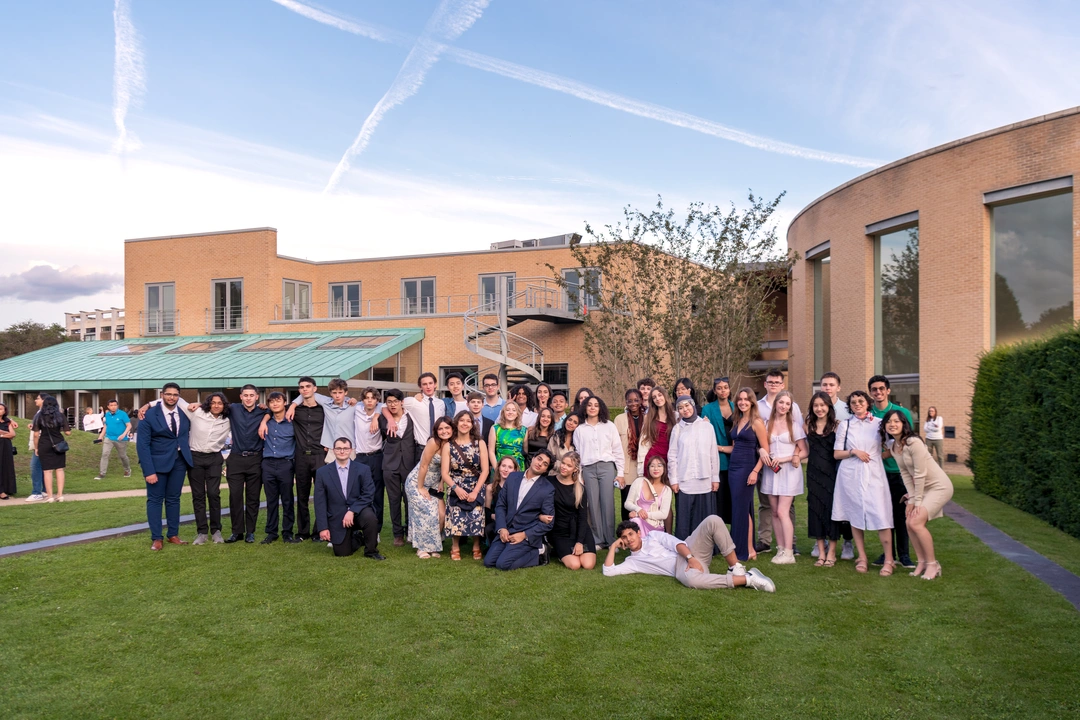What’s the Difference Between an Online Summer School and an In-Person Summer School?

Academic summer schools are an incredibly popular way to maintain academic focus over the school holidays, and they continue to evolve beyond the typical school curriculum.
When it comes to choosing the summer school that’s right for you, it’s important to make an informed choice. Here are the key points to consider when deciding between an online and in-person programme.
What Is a Summer School?
Summer schools are short educational programmes that usually take place during the summer months. The length of different summer school programmes can vary, but they tend to span a few weeks, and provide an intensive and focused learning experience.
While summer schools provide an opportunity to delve deeper into your subject of choice, they’re not just about schoolwork – you’ll also develop new skills, from the academic to the social.
What’s the Difference between an Online Summer School and an In-Person Summer School?
The format of summer schools can be quite variable, so it’s important to understand what to expect before making a decision.
The precise structure will differ based on the institution and type of programme you ultimately choose, but the biggest difference will be whether the course is conducted online or in-person.

What is an online summer school?
Online summer schools are educational programmes conducted entirely over the internet, allowing you to participate remotely, from the comfort of your own home. They’ll often involve online lectures, group discussions and projects, virtual socials and more.
Our sister organisation, OxBright, offers a range of online summer schools tailored for specific subjects and ages, all delivered by experts in the field.
What is an in-person summer school?
In-person summer schools are educational programmes which require you to attend classes, workshops and activities on a physical campus. They can be international summer schools, giving you the opportunity to travel and explore a different country and culture, or they can be somewhere more local, letting you stay close to home.
An Oxford Scholastica in-person summer school gives you the opportunity to explore a subject of interest in a small-class setting, and experience the same tutorial-style teaching used by world-class institutions like the Universities of Oxford and Cambridge.
Please note, the Oxford Scholastica Academy is not affiliated with any UK universities.
Online Summer Schools vs In-Person Summer Schools
So, which is better: an online or in-person summer school?
What are the advantages of an online summer school?
1. Flexibility and Convenience
Online summer schools are able to cater to students with varying schedules and commitments. They’re often designed to suit all time zones, so you can attend the live sessions from anywhere in the world and complete homework tasks in your own time.
2. Cost-Efficiency
They can also be more cost-efficient, removing the travel and accommodation expenses typically associated with an in-person programme.
Online summer schools can offer a more financially accessible opportunity for students to explore their subject and develop skills in preparation for university and a future career.
3. Technology Integration
Online summer schools also leverage technology to facilitate interactive learning, using multimedia resources, virtual labs and more. These tools can all help to enhance overall learning and ensure a fully immersive experience.
Taking part in an online summer school will also develop your computer literacy skills – super useful for any career!

What are the challenges of an online summer school?
1. Limited Physical Interaction
On the flip side, reduced face-to-face interaction can pose its own challenges. It might feel more difficult to socialise outside of class, or it might be more tiring to stay motivated in a virtual environment.
However, making an active effort to reach out and collaborate with tutors and peers can help keep you motivated and engaged!
2. Technology Barriers
Access to reliable technology can also be a unique challenge of online summer schools, particularly as taking part in live sessions requires access to a suitable device, as well as a strong internet connection.
However, there are ways to ensure inclusivity and appropriate support for students with diverse technological needs.
What are the advantages of an in-person summer school?
1. Hands-On Learning
A major advantage of in-person summer schools is the chance to gain hands-on experience. Some courses offer practical learning opportunities, including a range of challenges, to apply your learning and skills.
As part of our residential programmes, students take part in subject-specific Challenge Afternoons to apply what they’ve learnt in the classroom to a real-life challenge.
For example, our Experience Engineering Academy students take part in the Bridge Building Challenge to design and build a bridge that can support the most weight.
2. Social and Network Opportunities
Interacting with fellow students and tutors in-person can also make it easier to build relationships and professional networks.
Many students leave our residential summer school with new friendships that last long after graduation. It’s a unique opportunity to meet people from different backgrounds – students and tutors! – who share the same interests as you. You might even find a mentor to help you along in your academic journey.
3. Campus Facilities
Taking part in an in-person summer school also means you’re able to make use of high quality campus facilities, including libraries, laboratories and sports amenities.
All Oxford Scholastica residential students stay in a University of Oxford college room, replicating what university living is like, as well as getting to enjoy the city’s cafes, shops and culture outside of class!

What are the challenges of an in-person summer school?
1. Location and Accessibility
Typically, the main challenges of an in-person summer school are travel, accommodation and geographical constraints. Since you’re required to be on-site to participate in classes, this also means additional costs in travelling to campus and finding accommodation. However, we’re always finding ways to make in-person programmes more accessible and inclusive.
2. Structured Schedule
In-person summer schools tend to be quite structured, and you’ll be expected to attend different parts of the programme at particular times.
This could be a challenge to students who might prefer a more flexible approach to learning. However, certain programmes can be adapted to accommodate diverse needs, so make sure to check what kind of accommodations each programme can provide!
Making the Right Choice for You
So far, we’ve laid out the advantages and challenges of online and in-person summer schools, and we encourage you to consider all of these to make the choice that’s right for you. Remember, there’s no one “right” or “better” experience – everyone’s preferences are personal!
Try taking some time to self-reflect on your personal academic preferences before making a decision. Here are some areas that you may want to consider:
I. Learning style and preferences
Everyone learns a little bit differently, so reflecting on your preferred learning style and environment can be helpful in coming to a final decision. Consider which learning experiences you enjoyed the most, and reflect on which aspects worked well for you.
This can really influence your choice between an online and in-person summer school. For example, many students experienced a shift to online learning during the Covid-19 pandemic, and while some students thrived in this new format, others struggled.
Similarly, while some students might thrive under the flexibility of virtual summer school programmes, others prefer the stricter schedule that comes with an in-person summer school.
II. Academic goals and subjects
It’s also important to consider your personal academic goals. Unfortunately, not all programmes are able to offer all subjects virtually as well as in-person, so the availability of each format for your chosen subject might influence your decision.
Online and in-person summer schools also often focus on developing different academic skills, so having a good idea of your personal goals can be really helpful in informing your decision.
III. Future plans and networking
While your professional life may seem far in the future right now, considering potential career plans could help you in your decision.
For careers where networking is a key step in progression (for example, journalism or public relations), in-person summer schools can provide the opportunity to finetune your networking skills, and to start building your professional network at an early stage.
For careers that are largely remote, with flexibility in working hours, taking part in an online summer school can help you to develop essential time-management skills and gain experience working virtually.

Overall, there’s no right answer for which type of summer school is better. The decision depends on a range of factors, including your individual learning style, your unique goals, and your personal preferences.
At the end of the day, no matter whether you choose an online or in-person summer school, you’ll always gain a unique and insightful experience, which will have plenty of academic and personal benefits!

By Kylie Li
Recommended articles
Best Universities to Study Medicine in the World
A degree in Medicine spans many years, so it’s important to make a good choice when committing yourself to your studies. This guide is designed to help you figure out where you'd like to study and practise medicine. For those interested in getting a head start, the...
What Is A Year Abroad?
One of the great opportunities offered to UK university students is taking a year abroad. But what does this involve? Who can do it? What are some of the pros and cons? In our year abroad guide, we’ll explain some of the things to bear in mind when considering this...
The Ultimate Guide To Summer Internships
Are you eager to make the most of your summer break and jumpstart your career? There are so many productive things students can do in the summer or with their school holidays, and an internship is one of the most valuable! A summer internship could be the perfect...


